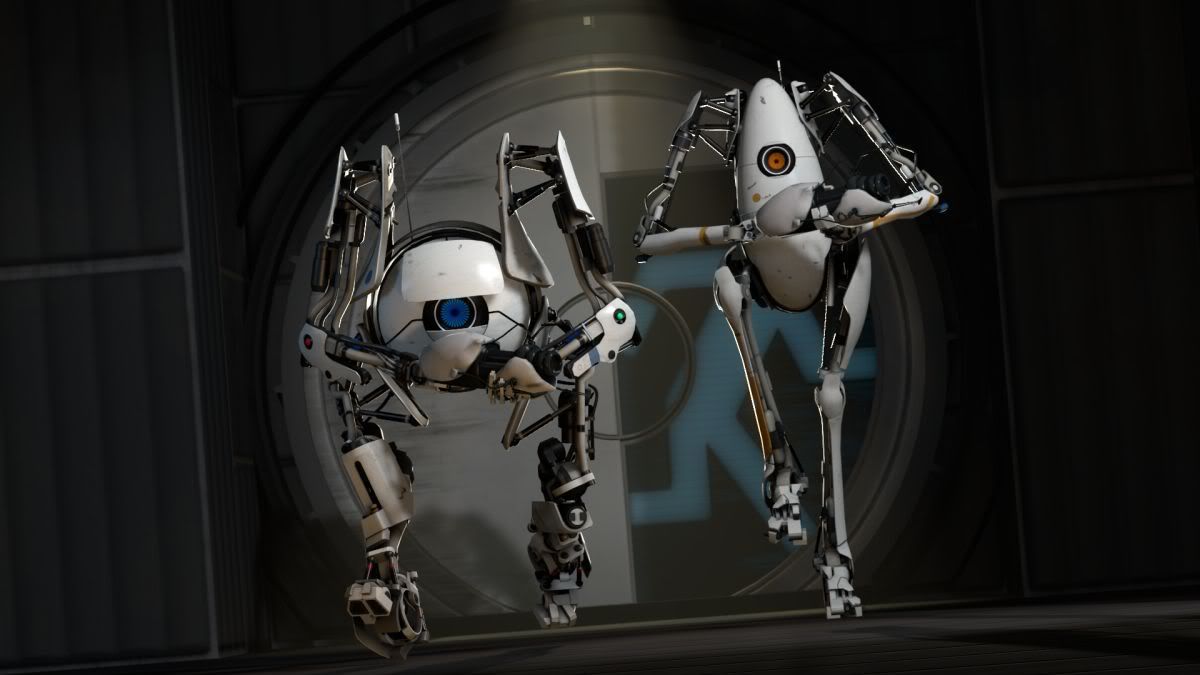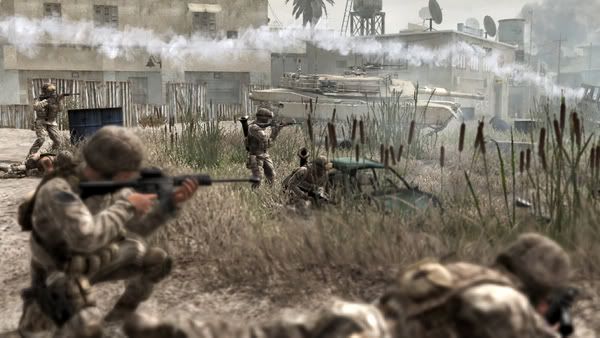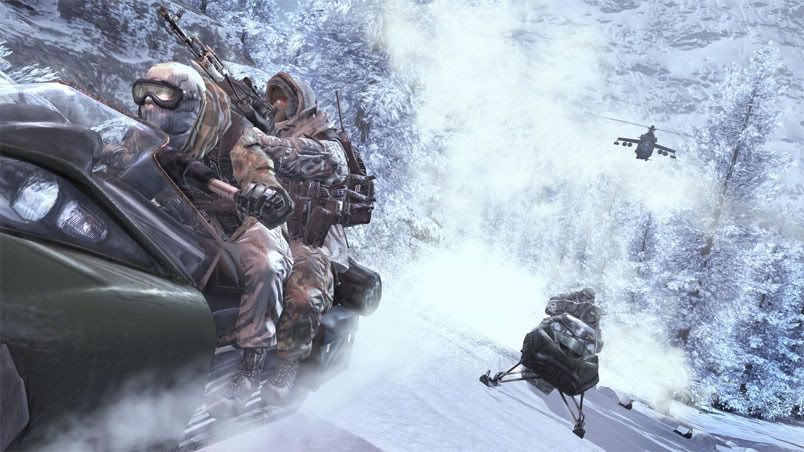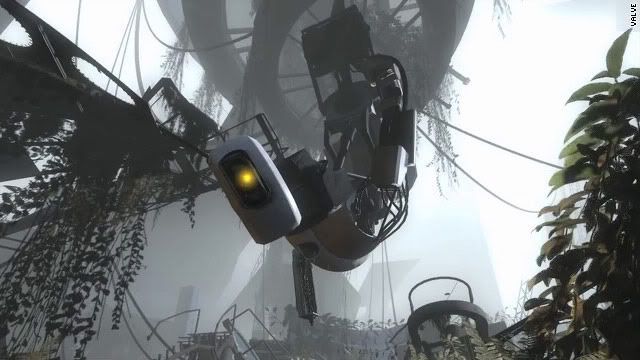
If you don't have any friends, now isn't a good time to be a gamer.
Of all the trends flooding the industry, by far the most prominent and powerful is socialization. The social-gaming movement, which has sparked the creation of dedicated app and game developers, has crept into the mainstream in a big way.
It seems that before every triple-A title is released, players scream out for a co-operative mode. They want to be able to not only play with their friends in a multiplayer environment, but have dedicated levels and campaigns designed purely for completion with others.
It would be foolish to assume this is another trend that will pass as quickly as it came. Valve chief Gabe Newell recently said that not only will his company, which has incorporated co-op into its few most recent titles, continue to focus on partnership modes, but he also signaled the dedicated single-player campaign won't necessarily be the main focus of future titles.
Valve is nothing if not forward-thinking. The co-op feature of Portal 2, (full disclaimer: I have not completed it), was one of the most talked-about features of the game before its release, and the company even used it in the pre-release marketing.
But Valve’s newest game isn't the only title to feature a co-op campaign as a main feature: Modern Warfare 2, Dead Island, Fear 3, Fable 3, and Brink are just some of the already released or upcoming titles that feature and highlight co-op gaming.
But questions remain about how this trend will not only impact the mainstream, solo-gaming experience but the act of storytelling within these new types of games that speak to multiple, different players.
Initially, the concept of a co-op gaming experience shouldn't be a problem when integrating with a story. After all, games already have multiple characters — just like any other narrative medium — and there doesn't need to be any issue by having another player take control as well.
Introducing a co-op element could also help with the players' emotional connection to the story. Often players encounter a heightened sense of responsibility when working with another — after all, no participants really want to get their partner killed.

If you’re battling against waves of enemies in Modern Warfare 2, you may get frustrated by yourself if you die, but it won’t matter because you can just try again. If you mess up and your partner dies, then the frustration is much greater.
The concept of working for a shared goal is more motivating than simply working by yourself, so a co-op campaign has the opportunity to feed into that, with various narratives, backgrounds, and expositions that could push players forward.
It seems there are two very different types of co-op campaigns being developed now, and two recent games exemplify the pros and cons of both approaches: Modern Warfare 2 and Portal 2.
Both represent either end of the spectrum when it comes to co-operative storytelling. One is heavy on exposition, context, and dialogue, while the other is stand-alone — more focused on the goal than the telling of the story.
But perhaps this approach ignores narrative opportunity.
The co-op campaign in Modern Warfare 2 was a welcome addition — more content for the same amount of money. The campaign itself is divided into a few dozen missions you play with another gamer focused on overcoming military objectives.
Some include a snow-mobile race, a level in which you must protect some computer hardware from waves of different enemies while some more complicated missions have one player in an aircraft direct another on the ground away from enemy troops.

It’s a fun campaign, but it lacks context. None of the missions are put together in any kind of format story-wise, and the only hint a player has about what he or she is doing is that the co-op missions are often versions of those found in the single-player campaign.
There are goals, yes, but there is no provided reason for why the player should accomplish them, as opposed to more lengthy co-op campaigns like Left 4 Dead. There is simply no narrative structure here.
On the other hand, Portal 2 doesn’t necessarily take gamers through a set, constructed story, but as Valve demonstrated in the first Portal, the story is told through atmosphere and dialogue.
Exposition is handed over to GLaDOS, who tells the robots why they are there, what they are doing, and then urges them to continue.
She says things like “this facility was originally built for humans” and makes random comments about how human test subjects need to be taught how to cooperate, and so on. These hints give the player the idea there is much more than what is going on around them, and that they are part of a much bigger world.
To be sure, the motivation for completing these test chambers is thin: “for science.” But it’s arguably better than not even knowing what your motivation is, e.g. a grunt with a gun.
The nature of co-opcampaigns naturally restricts the amount of storytelling available, and, of course, the extent to which narrative plays a part in each will vary greatly. But unless co-op modes are the main feature of a title, games like Portal 2 and Modern Warfare 2 share something in common: They are of a much better quality when handing over exposition.

Of course, there are arguments that co-op campaigns aren’t designed for stories and are just a bit of fun. But many of the arguments against co-operative gaming with regard to storytelling don't actually have to do with the game itself, but rather gamers' reaction to it.
For instance, it's easy to speak to solo players. They are likely to concentrate fully on what's happening onscreen — to focus on whatever the developers want them to.
With multiple players, the likelihood of such concentration declines. Players will likely be speaking over headsets; coordinating different movements; chatting about their last kill, raid, or success; and they won't necessarily be listening to an NPC describing the context of the next objective.
Of course, the argument against all of this is that gamers don’t really care about context when they’re playing with their friends — they just want to have a good time.
But I reject that premise. This isn’t a team deathmatch situation here– both gamers in a co-op campaign are working towards a common goal or purpose. They are focused on an ending point, and need to overcome obstacles in order to get there.
How is that not a narrative structure?
Games need to move forward as a medium. They need to incorporate better stories and narrative in everything they do. If co-op campaigns are here to stay, then companies like Valve need to keep doing what they do best, and developers like Infinity Ward need to follow their example.
Otherwise, well, what’s the point?


